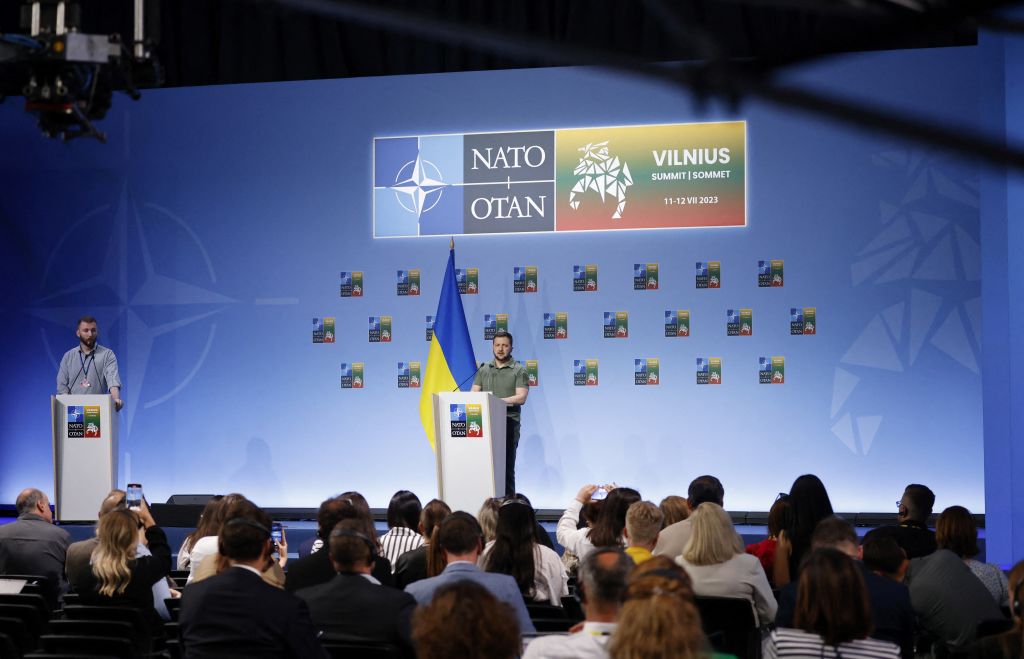The Nato summit in Vilnius has not helped Ukraine. Rather than facilitating the country’s swift accession into Nato, the alliance introduced conditions for membership called the ‘Annual National Programme’: a fudge, in other words.
Nato leaders said they would continually ‘regularly assess progress… on [Ukraine’s] path towards future membership’. Ukraine would be invited to join the alliance only once ‘conditions are met’, the document stated. Those conditions are Ukraine’s progress on democratic and security sector reforms. Volodymyr Zelensky, who nearly lost his temper, said that Ukrainians would like the allies to be more specific.
Kyiv had prepared for the likelihood of not receiving an immediate invitation to Nato membership, as the US and Germany have hinted their opposition. The White House’s stance could be explained by the desire to exchange peace for Ukraine’s non-membership in Nato in any negotiations with Russia. Zelensky has previously explored this path, but such an offer failed to deter Putin from invading last February. Zelensky applied for fast-track Nato membership in September – after Putin annexed four occupied regions in southern and eastern Ukraine – but to no success.
Ukraine’s relations with Nato remain virtually unchanged
Ukraine wanted a deferred invitation to join Nato. Its integration obviously wouldn’t occur during the war with Russia, but that would allow ample time to implement the necessary reforms. However, Ukraine knows what it’s like to wait in vain. Back in Bucharest in 2008, Ukraine was told it would become a Nato member at some point in the future, but the promise was reviewed later that year, and requirements for Ukraine’s membership were never specified.
Ukraine’s relations with Nato remain virtually unchanged after this week’s summit. The G7 declaration offering weapons and consultations in case of Russian aggression is reminiscent of the Budapest Memorandum of 1994, which left Ukraine fighting Russia alone. It is nowhere near the Israel-like security guarantees that have been touted.
The statement means little, since arms are already being supplied to Ukraine. The only difference is the promise from G7 leaders to do so ‘as much as it takes’, but it’s a sentiment already familiar to weary Ukrainians.
The Kremlin feared that this Nato summit could give Ukraine stronger security guarantees, or sturdier defences in the face of a nuclear strike. Such a feeble position from the alliance has given Putin a green light to persist in its war against Ukraine.







Comments